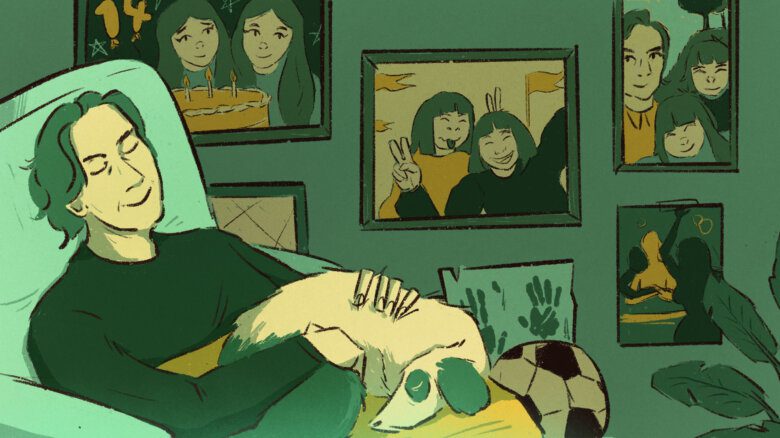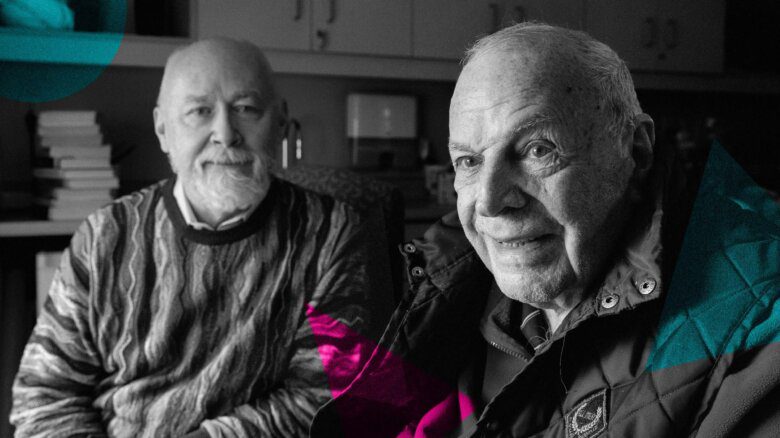“Ask Kai: Advice for the Apocalypse” is a column by Kai Cheng Thom to help you survive and thrive in a challenging world. Have a question? Email askkai@xtramagazine.com.
Dear Kai,
I’m stuck in a tricky situation where I feel like I’m losing my best friend to gender dysphoria. Some might find my question problematic, but I really need some clarity. Allow me to back up a bit: I’m a trans woman, and so is my best friend. We met when we were both coming out and starting our transitions five years ago, during our second year of college. We’ve been super close ever since. The thing with my friend is that she is extremely intense. Everything she does, she does intensely, if you know what I mean.
Anyway, she has always had much worse dysphoria than I do, to the point that she talks about it pretty much constantly. She’s always thinking about how the men in her life (she only dates men) don’t see her as a real woman. I think that’s somewhat true because transmisogyny is a real thing and when do men ever see trans women as real women? But also, my friend looks great, even in a conventional cis-normative way. She has already had both top and bottom surgery, as well as facial feminization surgery, but she’s always talking about wanting more and more surgeries and she says that she thinks this is the only way she’ll find a man to love her.
This worries me so much, because well, I think there are some other things that she could work on that would be more helpful, like in counselling—she could maybe work on some relationship skills that she struggles with, to be blunt. As soon as a guy doesn’t text her back for an hour she sends him, like, 20 text messages starting with “Where are you?” and ending with “Go f**k yourself.” But if I so much as breathe the wrong word, she immediately lashes out at me and says I’m being problematic and unsupportive and putting my internalized transmisogyny on her. Which I suppose might be true. But if I’m really, really honest with myself, it feels very draining to be around her because every conversation is about how much she hates herself, and there’s nothing I’m allowed to say that doesn’t set her off. What do you think I can do to help her out and be a better friend?
Problematic And Super Stressed
Dear PASS,
Friendships between trans women are definitely the most beautiful and complex relationships that I’ve encountered in my own life, and every “problematic” word you’ve written relates to many situations I’ve encountered in my own community. It sounds like your friend is in a great deal of pain, and in the face of that enormous suffering, you are feeling the pain as well. What can we do when someone we love is drowning, and in our attempts to save them, we start to fear being pulled into dangerous waters?
The first thing I might suggest, PASS, is slowing everything down and re-centring yourself in your own feelings, thoughts and boundaries. This could look like a lot of different things, but one way I might suggest is simply taking some time alone to just be with your emotions about this friendship. What do you notice? What do you feel? The dominant colonial culture encourages so much doing and deciding. But you don’t necessarily need to do or decide anything now, PASS. You’re allowed to just feel your feelings, and in so doing, those feelings might just show you the way.
If you’re the journalling type, you might use this moment of reflection to write (or audio-record) some answers to the following questions: How does being with your friend make you feel, for better and for worse? What do you like or love about this friend? What gets triggered for you when you hear her talk about her dysphoria and her desire to have more surgeries done? And what does being a good friend mean to you?
I wouldn’t worry about getting the “right” or “wrong” answers to these questions–rather, I’d encourage you to just take note of how many parts of your own experience you can notice and name. I invite you to welcome all of your feelings–even if they are contradictory or “problematic.” Offer yourself some space and compassion to just be who you are, and feel what you feel. Read or listen to your answers. What is this like? Does it change anything about how you see the situation?
The reason that I’m inviting you to take some time to focus on your own experience, PASS, is that when I read your letter, I’m not sure that the only thing you’re asking for is strategies to be a better friend. I think you’re also saying that you’re unhappy in the relationship and you want it to change.
Most friendships, by definition, are mutual: both people are getting some of their needs met through the relationship, even when there is a persistent dynamic of support from one friend to the other. When the friendship becomes one-sided, with only one person getting their needs met, the friendship usually becomes tense and vulnerable to conflict. Often, this conflict is unspoken, but still exists, influencing each person’s internal experience of the other. In your case, PASS, it seems to me like what you need is to be able to be authentic in how you talk to and support your friend. I think you want to be able to offer her support that feels like it is in alignment with your values and your worldview, rather than sticking to a script of what she wants to hear that doesn’t feel true to you.
Here we get to the tricky part of supporting our friends and loved ones who are in the midst of suffering: when someone is drowning in distress, it can be very tempting to dive into the water and try to drag them to shore by trying to impose our own plans and timelines on them. It can also be tempting to stay on the shore and throw them life-saving devices—that is, suggest strategies and tools such as therapy and self-help books. But of course, they have to want what we are offering. If they don’t, then we are bound to fail, and they might even drag us into the ocean and under the waters of suffering with them.
Therapists and theorists on human relationships and empathy such as the seemingly ubiquitous Brené Brown will often tell us that suffering people often don’t want or need to be rescued or advised. Rather, they need to feel like they are not alone in their experience. To return to the ocean metaphor, people who are suffering often want to feel as though there are people swimming strongly alongside them—people who are in the water, too, and therefore know what it’s like, but who aren’t drowning and therefore don’t need to be rescued, either. This theory of empathy echoes ancient Buddhist notions of mindfulness and compassion, which offer us the idea that suffering is universal, and that we can accept it while still being kind to one another.
The problem in situations like yours, PASS, is that in the same way that your friend may not consent to being thrown a flotation device or carried to shore, you may not have consented to swimming in the ocean indefinitely. You might actually need, for your own mental health and well-being, to get into a boat, go to shore and lie on the beach. So the question becomes one of boundaries: if what your friend wants is just for you to listen to her and not share your own opinions, then how long and how much are you willing to do that?
“You are allowed to set limits on how long you want to talk about this issue and which courses of action you will endorse.”
Your friend is entitled to reject your advice about her dysphoria, because it is her suffering and not yours. She is, similarly, entitled to ask you not to share your perspective or advice with her when it comes to her dysphoria. However, you are allowed to set limits on how long you want to talk about this issue and which courses of action you will endorse—not necessarily because she is “wrong” about her dysphoria or what she plans to do about it, but because those limits are what you need for your own well-being in the relationship.
Setting limits in a friendship generally requires that we be willing to have courageous conversations where we own our needs and ask for what we want without imposing a judgment, or our values, on to our friends. In your case, PASS, this might look like telling your friend that you’ve noticed that she doesn’t seem to want your advice, and then asking if this is true. You then might ask her what she really does want from you in terms of support and let her know what you need in order to provide that support well (like a time limit on how long you want to talk about dysphoria, or the right to request a “time out”). It’s important to ground such requests in an acknowledgement that limits are for your well-being, and not because she is inherently bad.
Courageous conversations are tough, because even with all the skills and good intentions in the world, we don’t know how the other person will react to them. We can’t control their feelings or their process— only how we respond to them. That’s okay, PASS. The mark of a healthy relationship is one that can withstand conflict and challenge, and simultaneously, one where everybody’s boundaries are respected. Expect things to get complicated. That is allowed, too.
Strong friendships can be wild and messy—like the waves of the ocean, like trans women ourselves. Let yourself be messy, PASS, even as you strive to be compassionate and kind. I like to imagine that trans women are brilliant and resilient enough to find their way through all kinds of complexity, because after all, isn’t that what it is to live in this world as a trans woman? The ocean makes space for all its waves. There is enough space for all your friend’s feelings, and for all of yours. There is enough space in this world for every part of us.
Kai Cheng Thom is no longer a registered or practicing mental health professional. The opinions expressed in this column are not intended or implied to be a substitute for professional medical advice, diagnosis or treatment. All content in this column, including, but not limited to, all text, graphics, videos and images, is for general information purposes only. This column, its author, Xtra (including its parent and affiliated companies, as well as their directors, officers, employees, successors and assigns) and any guest authors are not responsible for the accuracy of the information contained in this column or the outcome of following any information provided directly or indirectly from it.


 Why you can trust Xtra
Why you can trust Xtra


